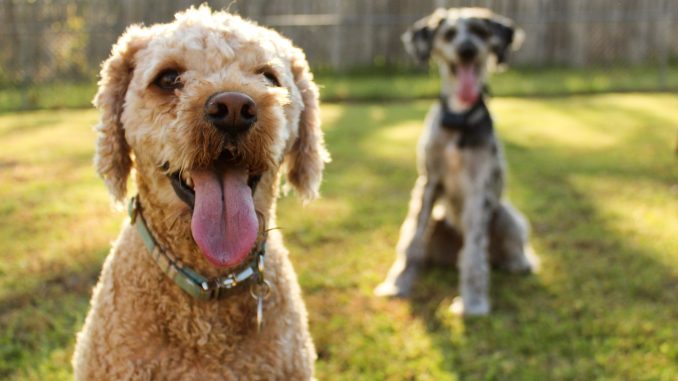
Imagine a world where every tail wag tells a story and every bark is a song of joy. That’s the world families enter when they welcome a dog into their home. I grew up with a German Shepherd’s loyalty and now share laughter with two Labradors. I’ve experienced the magic dogs sprinkle in a family’s life.
From living-room zoomies to serene walks in the park, dogs aren’t just pets; they’re the heartbeats of our homes. Ready for a paw-some adventure? Let’s leap into the delightful quest of finding the best dog for families, where every wagging tail holds the promise of a new story!
Choosing Your Furry Soul Mate: What to Consider Before Saying ‘Woof!’
Selecting the right dog for your family is like solving a delightful puzzle, where each piece is as unique as your family’s lifestyle. Before we dive into the breeds, let’s paw-se for a moment to consider what makes a dog a perfect fit for your household.
Think of energy levels – does your family love outdoor adventures, or are cozy cuddle sessions more your style? Size matters too; a Great Dane in a tiny apartment might feel like a bull in a china shop. Also, ponder over fur maintenance – are you ready for a shedding extravaganza, or is a low-maintenance coat more your cup of tea?
Then, there’s the age-old question of compatibility with children and other pets. Not all dogs have the patience of a saint when it comes to kids or the social butterfly flair with other animals. And, let’s not forget about trainability and health considerations. A dog with a learning eagerness can make training a breeze, but some breeds might need more patience and treats.
Every dog has its day, and in your family, every day can be a dog day – if you choose wisely!
TABLE OF CONTENTS
The Best Family Dogs
1. Labrador Retriever: The Family Favorite
In a family setting, a Labrador Retriever is like the sun around which the daily routine revolves. Whether it’s accompanying the kids on their adventures in the backyard or being the enthusiastic partner on family hikes, Labs fit seamlessly into the family dynamic, spreading joy with their wagging tails and heartwarming presence.
- Personality: Labrador Retrievers are renowned for their friendly and outgoing nature. They are the epitome of a family dog – loyal, affectionate, and always eager to be part of all family activities.
- Temperament: Labs are known for their stable and reliable temperament. They are generally good-natured and well-behaved, making them an excellent choice for families with children.
- Energy Level: High. Labrador Retrievers are active dogs who love to play. They thrive in families that can provide them with plenty of exercise and outdoor activities.
- Size: Medium to large. They typically weigh between 55 to 80 pounds, making them a robust and sturdy companion.
- Maintenance Requirements: Moderate. Labs have a short, dense coat that requires regular brushing to minimize shedding. They shed moderately, so regular brushing is necessary to manage loose fur. They also need regular exercise to keep them fit and happy.
- Good with Children: Absolutely! Labs are patient and gentle, making them one of the best dog breeds for kids.
- Good With Other Dogs/Pets: Generally yes. They are usually friendly with other dogs and pets, especially if socialized from a young age.
- Trainability: High. Labs are intelligent and eager to please, making them one of the easier breeds to train. They excel in obedience and are often used as service dogs.
- Health Issues: They can be prone to hip and elbow dysplasia, as well as certain eye conditions. Regular vet check-ups are important.
- Life Expectancy: About 10-12 years. With proper care and regular veterinary check-ups, they often live a full and healthy life.
- Barking Level: Moderate. Labs are not known for excessive barking, but they will alert you to strangers or unusual situations.
- Exercise and Activity Needs: Labrador Retrievers have a lot of energy and need regular exercise. They love long walks, playing fetch, and are often up for a swim.
- Sociability: Labs love being around people and are known for their friendly demeanor. They are social butterflies and often make friends wherever they go.
2. French Bulldog: The Charming Companion
Imagine cozy evenings with a French Bulldog curled up on the couch, its bat-like ears perking up at every chuckle during family movie nights. These little charmers effortlessly become an integral part of the family, with their playful antics and lovable demeanor creating endless moments of laughter and affection.
- Personality: French Bulldogs are known for their easy-going and affectionate personality. They’re playful, alert, and adapt well to different environments, making them great companions for all kinds of families.
- Temperament: Frenchies are even-tempered, sociable, and friendly. They enjoy being around people and are particularly good at forming strong bonds with family members.
- Energy Level: Moderate. Despite their playful nature, French Bulldogs don’t require a lot of exercises. They are happy with short walks and some playtime at home.
- Size: Small. Typically weighing under 28 pounds, they are a compact and muscular breed, perfect for apartment living or smaller homes.
- Maintenance Requirements: Low. With their short coat, French Bulldogs have low shedding and require minimal grooming.Their short coat is easy to care for, though they do require regular cleaning of their facial wrinkles to prevent infections.
- Good with Children: Yes, they are known to be gentle and patient with children, making them a suitable breed for families.
- Good With Other Dogs/Pets: Usually, friendly with other pets, especially when socialized from a young age.
- Trainability: Moderate. French Bulldogs can be trained, but they have a somewhat stubborn streak, so patience and consistency are key.
- Health Issues: They are prone to breathing issues due to their brachycephalic (flat-faced) nature. Also, they can have skin, spine, and joint issues, so regular vet check-ups are essential.
- Life Expectancy: Around 10-12 years. With proper care, French Bulldogs can be a long-lived companion.
- Barking Level: Low. They are not known to be excessive barkers.
- Exercise and Activity Needs: Their exercise needs are moderate. A couple of short walks and some play sessions are usually enough to keep them happy.
- Sociability: French Bulldogs thrive on human interaction and love being part of family activities. They are affectionate and often seek out the company of their humans.
3. German Shepherd: The Loyal Protector
Picture a German Shepherd standing guard at a child’s lemonade stand or patiently watching over a family picnic. These noble dogs are not just pets; they’re guardians of the family realm, offering a sense of security and companionship. Their presence weaves a fabric of loyalty and protection into the daily lives of their families.
- Personality: German Shepherds are known for their intelligence, courage, and confidence. They are serious and strong-willed dogs, making them excellent working dogs as well as loyal family pets.
- Temperament: They are protective, alert, and can be aloof with strangers, but are incredibly loving and loyal to their family.
- Energy Level: High. German Shepherds are active and enjoy having a job to do. They excel in activities that challenge their mind and body.
- Size: Large. They typically weigh between 50 to 90 pounds, with a strong and muscular build.
- Maintenance Requirements: Moderate. They have a dense double coat that requires regular brushing, especially during shedding seasons. Known for heavy shedding, particularly during seasonal changes, they need frequent grooming.
- Good with Children: Yes, especially when raised with them. They are known for their protective nature around children.
- Good With Other Dogs/Pets: With proper socialization, they generally do well with other pets.
- Trainability: Very high. Their intelligence and eagerness to please make them one of the easiest breeds to train.
- Health Issues: Prone to hip and elbow dysplasia, as well as other genetic conditions. Regular health screenings and a healthy lifestyle are important.
- Life Expectancy: About 9-13 years. They tend to live healthy lives when well-cared for.
- Barking Level: Moderate to high. They tend to bark as a way of alerting their family to strangers or unusual occurrences.
- Exercise and Activity Needs: German Shepherds need a lot of exercise and mental stimulation. They enjoy long walks, running, and activities like agility training.
- Sociability: They can be wary of strangers but are extremely loyal and affectionate with their family. Socialization from a young age is key to helping them become well-rounded dogs.
4. Golden Retriever: The Heartwarming Companion
Envision a sunny afternoon with a Golden Retriever playfully chasing bubbles in the yard, surrounded by giggling children. These dogs are not just pets; they are the embodiment of joy and warmth in a family. Their gentle nature and love for play make them an ideal partner for both quiet evenings and outdoor adventures, knitting themselves seamlessly into the fabric of family life.
- Personality: Golden Retrievers are affectionate, friendly, and devoted. Known for their gentle disposition, they are one of the most beloved family dogs.
- Temperament: They are patient, kind, and trustworthy. Goldens have an amiable nature, making them excellent companions for children and adults alike.
- Energy Level: Medium to high. They are playful and enjoy being active, loving activities like fetching, swimming, and playing with family members.
- Size: Medium to large. Typically weighing between 55 to 75 pounds, they are a well-built and sturdy breed.
- Maintenance Requirements: Moderate. Their beautiful golden coats require regular grooming to keep them looking their best and to reduce shedding.
- Good with Children: Exceptionally good. Their patience and gentle nature make them one of the best breeds for families with kids.
- Good With Other Dogs/Pets: Generally yes. They tend to be sociable and get along well with other dogs and pets.
- Trainability: High. They are intelligent, eager to please, and respond well to positive reinforcement training methods.
- Health Issues: They can be prone to hip dysplasia, heart conditions, and certain cancers. Regular health check-ups and a healthy lifestyle are important.
- Life Expectancy: About 10-12 years. With proper care, they can be a long-term loving member of the family.
- Barking Level: Moderate. They do bark, but not excessively, and are more likely to greet strangers with a wagging tail than a bark.
- Exercise and Activity Needs: Golden Retrievers need regular exercise to keep them healthy and happy. They love interactive play and enjoy being part of family activities.
- Sociability: They are known for their friendly and outgoing nature. Goldens love being around people and are quick to make friends.
5. Bulldog: The Adorable Gentle Giant
Can you picture a Bulldog lazily lounging on the sofa, occasionally letting out a soft snore, much to the amusement of the family? These lovable dogs add a unique charm to any home, with their endearing faces and calm demeanor bringing a sense of serenity and affection to the family dynamics.
- Personality: Bulldogs are known for their loving and gentle personality. Despite their gruff appearance, they are incredibly affectionate and form strong bonds with their families.
- Temperament: They are calm, courageous, and dignified. Bulldogs are famously good-natured, making them a great choice for families.
- Energy Level: Low. Bulldogs are not overly active and are perfectly content with short walks and plenty of relaxation time.
- Size: Medium. They usually weigh between 40 to 50 pounds, with a compact and muscular build.
- Maintenance Requirements: Moderate. Their wrinkled skin requires regular cleaning, and they need minimal grooming for their short coat.
- Good with Children: Yes, they are known for being gentle and protective of children.
- Good With Other Dogs/Pets: With early socialization, they generally get along well with other pets.
- Trainability: Moderate. Bulldogs can be stubborn but respond well to consistent, positive training methods.
- Health Issues: They are prone to breathing problems, skin infections, and hip dysplasia. Regular vet check-ups and attention to their health are important.
- Life Expectancy: About 8-10 years. Bulldogs are a brachycephalic breed, and their health needs careful monitoring.
- Barking Level: Low. Bulldogs are not known to be excessive barkers.
- Exercise and Activity Needs: They require minimal exercise, making them suitable for less active families or those living in smaller spaces.
- Sociability: Bulldogs are generally sociable and enjoy being part of family activities, though they can be a bit stubborn at times.
6. Poodle: The Intelligent Aristocrat
Think of a Poodle skillfully navigating an obstacle course in the backyard, showcasing its intelligence and agility, much to the family’s delight. Whether it’s a Standard, Miniature, or Toy variety, Poodles bring a blend of elegance and brains to family life, impressing with their quick learning and loving nature.
- Personality: Poodles are known for their sharp intelligence and elegant demeanor. They are active, alert, and carry an air of dignity.
- Temperament: Highly trainable and eager to please, Poodles are gentle and often excel in various dog sports and activities.
- Energy Level: High. Poodles are energetic and love to play, making them a great fit for active families.
- Size: Varies. Standard Poodles are large, Miniatures are medium, and Toys are small, catering to different family needs.
- Maintenance Requirements: High. Their curly coats require regular grooming to prevent matting. Poodles, however, are minimal shedders, making them suitable for people with allergies.
- Good with Children: Yes, especially when socialized early. They are playful and affectionate with kids.
- Good With Other Dogs/Pets: Usually, they get along well with other dogs and pets.
- Trainability: Very high. Their intelligence makes them one of the easiest breeds to train.
- Health Issues: Prone to certain genetic diseases like hip dysplasia and eye disorders. Regular health check-ups are crucial.
- Life Expectancy: About 12-15 years. Poodles have a relatively long lifespan for dogs.
- Barking Level: Moderate. They can be vocal but are not excessive barkers.
- Exercise and Activity Needs: They require regular exercise and mental stimulation to keep them happy.
- Sociability: Poodles are sociable and enjoy being around people, making them great family dogs.
7. Beagle: The Merry Little Hound
A Beagle is fun to have at home as it loves to playfully sniff around the garden, leading the kids on a mini adventure hunt. Their merry disposition and boundless curiosity bring a sense of lively exploration to any family outing, making them a beloved addition to households looking for a spirited yet affectionate companion.
- Personality: Beagles are known for their curious and merry nature. They are friendly, outgoing, and have a childlike eagerness for adventure.
- Temperament: They are gentle and even-tempered, making them a good fit for families with children.
- Energy Level: Medium to high. Beagles are energetic and require regular exercise to satisfy their curiosity and playful spirit.
- Size: Small to medium. Typically weighing between 20 to 30 pounds, they are a manageable size for most homes.
- Maintenance Requirements: Low. Their short coat is easy to care for, requiring only occasional brushing.
- Good with Children: Excellent. Their playful and tolerant nature makes them great companions for children.
- Good With Other Dogs/Pets: Generally sociable and get along well with other pets, thanks to their pack-hunting heritage.
- Trainability: Moderate. Beagles can be a bit stubborn but respond well to positive and patient training methods.
- Health Issues: Prone to obesity if not exercised properly. They can also have ear infections due to their floppy ears.
- Life Expectancy: About 10-15 years. With proper care, Beagles can enjoy a long and healthy life.
- Barking Level: High. Beagles are vocal dogs and known for their distinctive howls and barks.
- Exercise and Activity Needs: They need daily exercise to keep them mentally stimulated and physically fit.
- Sociability: Beagles are very sociable and enjoy being around people and other dogs, often thriving in a pack environment.
8. Rottweiler: The Gentle Guardian
A Rottweiler that gently watches over a toddler while they explore the backyard is embodying the role of a patient and protective guardian. In a family environment, these powerful dogs bring a sense of safety and loyalty, often forming an unbreakable bond with their human pack and becoming a steadfast companion in every family adventure.
- Personality: Rottweilers are confident, brave, and loyal. Known for their unwavering loyalty, they are protective of their family.
- Temperament: Despite their formidable appearance, Rottweilers are often calm and confident. With proper training and socialization, they are gentle and well-behaved family members.
- Energy Level: Medium to high. Rottweilers enjoy being active and require regular exercise to stay healthy and happy.
- Size: Large. They are robust and powerful, typically weighing between 80 to 135 pounds.
- Maintenance Requirements: Low. Their short coat requires minimal grooming but does shed seasonally.
- Good with Children: Yes, when properly trained and socialized from a young age. Their protective nature makes them vigilant guardians of children.
- Good With Other Dogs/Pets: Can be good if socialized early, but their strong guarding instincts mean they need careful introductions to other pets.
- Trainability: High. Rottweilers are intelligent and respond well to consistent, positive training methods.
- Health Issues: Prone to hip and elbow dysplasia, heart conditions, and certain types of cancer. Regular health checks are important.
- Life Expectancy: About 8-11 years. They require proper care and a healthy diet for a fulfilling life.
- Barking Level: Moderate. Rottweilers will bark to alert their family but are not excessive barkers.
- Exercise and Activity Needs: They need regular exercise to manage their energy levels and maintain their muscle tone.
- Sociability: Rottweilers can be aloof with strangers but are deeply devoted and affectionate with their family members.
9. German Shorthaired Pointer: The Energetic All-Rounder
A German Shorthaired Pointer is always eagerly leading a family on a hiking trail. Its energy and enthusiasm adds an extra layer of excitement to outdoor adventures. These dogs are not just pets; they’re active participants in family activities, always ready to turn an ordinary day into an extraordinary one with their zest for life and love for exploration.
- Personality: German Shorthaired Pointers are known for their intelligence, enthusiasm, and versatility. They are friendly and eager, always ready for a new adventure.
- Temperament: They are well-balanced, good-natured, and thrive in an active family environment.
- Energy Level: High. These dogs are full of energy and require ample exercise to keep them happy and healthy.
- Size: Medium to large. Typically weighing between 45 to 70 pounds, they have a sleek, athletic build.
- Maintenance Requirements: Low. Their short coat is easy to care for, needing only occasional brushing.
- Good with Children: Yes, especially when raised with them. Their playful nature makes them excellent companions for active children.
- Good With Other Dogs/Pets: Generally good, particularly if they are socialized from a young age.
- Trainability: High. They are intelligent and quick learners, responding well to positive training techniques.
- Health Issues: Prone to hip dysplasia, and some may have hereditary health issues like heart problems.
- Life Expectancy: About 12-14 years. With proper care and regular exercise, they lead a healthy and active life.
- Barking Level: Moderate. They can be vocal, especially when they’re excited or on the trail of something interesting.
- Exercise and Activity Needs: Their high energy levels require regular, vigorous exercise. They love activities like running, swimming, and playing fetch. To maintain their active lifestyle, German Shorthaired Pointers should eat nutrient-rich dog food.
- Sociability: German Shorthaired Pointers are sociable and enjoy being part of family activities, often forming strong bonds with their human companions.
10. Dachshund: The Charming Little Character
The Dachshund that playfully burrows under blankets on a lazy Sunday brings smiles and laughter with its endearing antics. In a family setting, these small but spirited dogs add a touch of whimsy and joy, with their unique appearance and lively personality making every day a little brighter and more amusing.
- Personality: Dachshunds are known for their bold and curious nature. They are playful, tenacious, and have a distinctive charm.
- Temperament: Despite their small size, they are brave and sometimes stubborn, with a surprisingly fearless attitude.
- Energy Level: Medium. They enjoy playtime and short walks, but their small legs don’t require extensive physical exercise.
- Size: Small. Typically weighing under 32 pounds, they are a perfect size for cozy homes and apartments.
- Maintenance Requirements: Low to moderate. Their grooming needs depend on the coat type – smooth, wirehaired, or longhaired. Wirehaired varieties shed less than their smooth or longhaired counterparts.
- Good with Children: With proper socialization, they can be good with children, but their small size means play should be supervised to prevent injury.
- Good With Other Dogs/Pets: They generally get along with other pets, especially if raised together from a young age.
- Trainability: Moderate. They can be stubborn but respond well to patient and consistent training.
- Health Issues: Prone to spinal problems due to their long backs, so careful handling and weight management are important.
- Life Expectancy: About 12-16 years. They often enjoy a long life with proper care and regular veterinary check-ups.
- Barking Level: High. Dachshunds are alert and can be quite vocal, making them good watchdogs.
- Exercise and Activity Needs: Moderate exercise is sufficient. They enjoy playtime and exploring on walks, but don’t require intense physical activity.
- Sociability: Dachshunds are affectionate with their families and can be quite sociable once they get to know someone.
11. Pembroke Welsh Corgi: The Royal Heart-Stealer
Picture a Pembroke Welsh Corgi herding the kids playfully in the backyard, its short legs moving swiftly and its face wearing a perpetual smile. These dogs bring a royal charm to any household, famously known for their association with Queen Elizabeth II. Their spirited and affectionate nature makes them a delightful addition to any family, offering both companionship and a touch of playful mischief.
- Personality: Pembroke Welsh Corgis are known for their friendly, outgoing, and intelligent nature. They are active and love being involved in family activities.
- Temperament: They are affectionate, loyal, and have a strong desire to please their owners.
- Energy Level: High. Corgis are surprisingly active and need regular exercise to keep them healthy and content.
- Size: Small to medium. They typically weigh up to 30 pounds, making them a manageable size for most homes.
- Maintenance Requirements: Moderate. They have a double coat that requires regular brushing, especially during shedding seasons.
- Good with Children: Yes, they are known for being good-natured and patient with children.
- Good With Other Dogs/Pets: Generally sociable with other dogs and pets, especially if socialized from a young age.
- Trainability: High. Their intelligence and eagerness to learn make them easy to train.
- Health Issues: Prone to certain issues like hip dysplasia and eye problems. Regular health checks are important.
- Life Expectancy: About 12-15 years. With proper care, they can enjoy a long and healthy life.
- Barking Level: Moderate. Corgis can be vocal and make good watchdogs.
- Exercise and Activity Needs: They require regular exercise and enjoy activities like walks, playtime, and even agility training.
- Sociability: Pembroke Welsh Corgis are very sociable and thrive on human interaction. They love being part of the family and are known for their friendly disposition.
12. Australian Shepherd: The Versatile Companion
The Australian Shepherd that enjoys catching a frisbee in the park showcases its agility and intelligence. These energetic dogs are the perfect fit for active families, bringing a sense of adventure and versatility to everyday life. Their ability to learn quickly and adapt to various activities makes them not just pets, but true partners in family escapades.
- Personality: Australian Shepherds are smart, work-oriented, and have a boundless enthusiasm for life. They are playful and affectionate, always ready for the next activity.
- Temperament: They are loyal, eager to please, and generally friendly, though they can be reserved around strangers.
- Energy Level: High. Australian Shepherds are incredibly active and thrive in an environment where they can expend their energy.
- Size: Medium. They typically weigh between 40 to 65 pounds, making them a robust and agile breed.
- Maintenance Requirements: Moderate. Their double coat requires regular grooming to maintain its condition and reduce shedding.
- Good with Children: Yes, especially when raised with them. They are known to be patient and protective of children.
- Good With Other Dogs/Pets: Generally, they are good with other dogs and pets, especially if socialized early.
- Trainability: Very high. They are intelligent and eager learners, excelling in obedience and agility training.
- Health Issues: Prone to certain genetic conditions like hip dysplasia and vision problems. Regular health checks are important.
- Life Expectancy: About 13-15 years. They tend to have a long, active life when well cared for.
- Barking Level: Moderate. They are vocal but not overly so.
- Exercise and Activity Needs: They need plenty of exercise and mental stimulation. Activities like hiking, playing fetch, and agility courses are ideal.
- Sociability: Australian Shepherds are friendly and enjoy being part of the family. They thrive on interaction and are great companions for active households.
13. Yorkshire Terrier: The Tiny Dynamo
A Yorkshire Terrier is a delight to have around, darting in the house with its tiny feet tapping a rhythm of joy and excitement. These pint-sized dynamos bring a touch of glamour and a lot of personality to any household. Ideal for families who appreciate the finer things in life, Yorkies offer not just companionship but a dash of elegance in their compact, lovable form.
- Personality: Yorkshire Terriers are known for their brave and adventurous spirit, packed into a tiny body. They are intelligent, confident, and often unaware of their small size.
- Temperament: Yorkies are affectionate and loyal, often forming a close bond with one particular family member.
- Energy Level: Moderate. They have plenty of energy for play and enjoy short walks, but their small size doesn’t require extensive physical activity.
- Size: Small. They typically weigh around 7 pounds, making them perfect lap dogs and companions for those with limited space.
- Maintenance Requirements: High. Their fine, silky coat requires regular grooming to keep it in top condition. Yorkies are very low shedders and are considered good for allergy sufferers.
- Good with Children: Better suited for families with older children who know how to handle small dogs gently.
- Good With Other Dogs/Pets: They can be sociable with other pets, but early socialization is key due to their feisty nature.
- Trainability: Moderate. They are intelligent but can be stubborn, requiring patience and consistent training.
- Health Issues: Prone to dental issues and sensitive digestive systems. Regular health check-ups are important.
- Life Expectancy: About 11-15 years. With proper care, they often enjoy a long, healthy life.
- Barking Level: High. They are alert and vocal, making them good watchdogs despite their small size.
- Exercise and Activity Needs: Moderate exercise like short walks and play sessions are sufficient for Yorkies.
- Sociability: Yorkshire Terriers enjoy human companionship and thrive on attention, making them great companions for those who can devote time to them.
14. Boxer: The Playful Protector
Imagine a Boxer gently playing tug-of-war with kids in the backyard, its expressive face showing sheer delight. Boxers are the quintessential family dog – playful, protective, and endlessly patient with children. They bring a unique blend of joy, energy, and steadfast loyalty to a family, creating an environment of fun and safety.
- Personality: Boxers are known for their playful and energetic nature. They are exuberant, friendly, and love being the center of attention.
- Temperament: Loyal and protective, Boxers are great with families. They are typically patient and gentle with children.
- Energy Level: High. Boxers are full of energy and require regular exercise to keep them happy.
- Size: Medium to large. They usually weigh between 60 to 70 pounds, with a strong, muscular build.
- Maintenance Requirements: Low. Their short coat is easy to care for, needing only occasional brushing.
- Good with Children: Excellent. Boxers are known for their love of and patience with children.
- Good With Other Dogs/Pets: Generally good, especially if socialized from an early age.
- Trainability: High. They are intelligent and respond well to positive, consistent training methods.
- Health Issues: Prone to certain health issues like heart conditions and hip dysplasia. Regular vet check-ups are important.
- Life Expectancy: About 10-12 years. They can lead a healthy life with proper care and regular exercise.
- Barking Level: Moderate. Boxers are not excessive barkers but will alert their family to anything unusual.
- Exercise and Activity Needs: They need regular physical and mental stimulation. Activities like long walks, play sessions, and interactive games are ideal.
- Sociability: Boxers are very sociable and thrive on human interaction. They enjoy being part of the family and are often friendly with strangers.
15. Great Dane: The Gentle Giant
The Great Dane calmly lies by the fireplace and its massive form is a comforting and majestic presence in the home. These gentle giants bring a sense of awe and tenderness to a family, combining a noble appearance with a heart full of kindness. Despite their size, Great Danes are known for their gentle approach, often becoming the most beloved and soft-hearted member of the family.
- Personality: Great Danes are affectionate, calm, and friendly. Despite their imposing size, they are gentle and loving.
- Temperament: They are known for their patient and mild-mannered nature, often referred to as ‘gentle giants.’
- Energy Level: Moderate. While they enjoy walks and playtime, they are also content with relaxing around the house.
- Size: Very large. They are one of the tallest dog breeds, often weighing over 100 pounds.
- Maintenance Requirements: Low. Their short coat is easy to groom, though they do shed and require regular brushing to manage loose fur.
- Good with Children: Yes, they are gentle and patient, but due to their size, supervision is recommended around small children.
- Good With Other Dogs/Pets: Generally good, especially with proper socialization.
- Trainability: Moderate. They are intelligent but can be a bit stubborn, requiring consistent and patient training.
- Health Issues: Prone to hip dysplasia, heart conditions, and bloat. Their size also means a shorter lifespan.
- Life Expectancy: About 7-10 years. Their size impacts their longevity.
- Barking Level: Low to moderate. They are not known for being excessive barkers.
- Exercise and Activity Needs: Daily walks and playtime are sufficient, but they do not require extensive exercise.
- Sociability: Great Danes are friendly and sociable. They enjoy being around people and often form strong bonds with their family members.
16. Siberian Husky: The Winter Wonderland Wanderer
In a snowy backyard, a Siberian Husky playfully bounds through the drifts, its thick coat shimmering in the winter sun. This breed brings a touch of the wild and an adventurous spirit to family life. With their striking appearance and boundless energy, Huskies transform routine walks into explorations and turn playtime into adventures, fitting wonderfully into active and outdoorsy families.
- Personality: Siberian Huskies are known for their friendly, outgoing nature. They are energetic, playful, and often exhibit a mischievous streak.
- Temperament: They are sociable and generally good-natured, not typically displaying the guard dog trait. Huskies are known for their independence and sometimes stubborn nature.
- Energy Level: High. These dogs are bred for endurance and need plenty of exercise.
- Size: Medium. They usually weigh between 35 to 60 pounds, with a well-proportioned, athletic build.
- Maintenance Requirements: High. Their thick double coat requires regular grooming, especially during shedding seasons.
- Good with Children: Generally good, especially when raised with them. Their playful nature makes them a fun companion for kids.
- Good With Other Dogs/Pets: Usually good with other dogs, but their high prey drive means caution is needed around smaller animals.
- Trainability: Moderate. They are intelligent but can be independent and willful, requiring patience and consistency in training.
- Health Issues: Generally healthy, but prone to some genetic conditions like hip dysplasia and eye problems.
- Life Expectancy: About 12-14 years. They tend to be a hardy breed with a relatively long lifespan.
- Barking Level: Moderate to low. They are more known for their unique howling.
- Exercise and Activity Needs: Huskies require a lot of exercise and mental stimulation. They thrive on activities like running, hiking, and playing in large, secure areas.
- Sociability: Siberian Huskies are very sociable and enjoy being part of the family. They often do well in households with multiple dogs.
17. Cavalier King Charles Spaniel: The Affectionate Aristocrat
A Cavalier King Charles Spaniel loves cuddling up on a child’s lap, its soft eyes full of affection. These dogs are the epitome of a lap dog, offering gentle companionship and a soothing presence. Ideal for families seeking a loving and mild-mannered pet, Cavaliers blend seamlessly into a home environment, bringing with them an air of quiet dignity and heartwarming affection.
- Personality: These Spaniels are known for their gentle, affectionate nature. They are friendly, sociable, and eager to please.
- Temperament: They are well-behaved and adaptable, fitting well into various family dynamics.
- Energy Level: Moderate. They enjoy playtime and walks but are also content with cozy snuggles.
- Size: Small. Typically weighing between 13 to 18 pounds, they are perfect for being close companions.
- Maintenance Requirements: Moderate. Their silky coat requires regular grooming to maintain its beauty.
- Good with Children: Yes, they are known for their gentle approach and are typically good with kids.
- Good With Other Dogs/Pets: Generally sociable and can get along well with other pets.
- Trainability: High. They are intelligent and learn quickly, responding well to gentle training methods.
- Health Issues: Prone to certain heart conditions and eye problems. Regular vet visits are important for their well-being.
- Life Expectancy: About 9-14 years. With proper care, they can be a long-term, loving member of the family.
- Barking Level: Low to moderate. They are not known for excessive barking.
- Exercise and Activity Needs: They need regular but not intensive exercise. Daily walks and play sessions are sufficient.
- Sociability: Cavaliers thrive on human interaction and love being part of family activities. They are known for their affectionate and friendly disposition.
18. Doberman Pinscher: The Dignified Defender
Can you envision a Doberman Pinscher standing alert in the yard, its sleek figure a symbol of strength and protection? Renowned for their loyalty, Dobermans are like vigilant guardians for the family, combining an imposing presence with a deeply affectionate nature. In a family setting, they offer not just security but also a loving companionship, becoming a devoted member of the household.
- Personality: Dobermans are known for their intelligence, alertness, and loyalty. They are confident and assertive dogs with a strong protective instinct.
- Temperament: They are fearless yet obedient, showing a gentle side within the family circle.
- Energy Level: High. Dobermans are energetic and thrive on physical and mental stimulation.
- Size: Large. Typically weighing between 60 to 90 pounds, they have a muscular and elegant build.
- Maintenance Requirements: Low. Their short coat is easy to care for, requiring minimal grooming.
- Good with Children: Yes, when properly trained and socialized. They are protective and can be gentle with family members.
- Good With Other Dogs/Pets: With early socialization, they generally get along well with other pets.
- Trainability: Very high. Dobermans are intelligent and respond well to structured training.
- Health Issues: Prone to certain genetic health issues like cardiomyopathy and hip dysplasia.
- Life Expectancy: About 10-13 years. Regular exercise and a healthy diet contribute to their well-being.
- Barking Level: Moderate. They bark when necessary, especially to alert their family.
- Exercise and Activity Needs: They require regular, vigorous exercise to manage their energy levels.
- Sociability: Dobermans are affectionate with their family and can be reserved around strangers. They thrive on companionship and interaction with their human family.
19. Miniature Schnauzer: The Spirited Companion
A Miniature Schnauzer playfully navigates through a family’s busy kitchen, its lively spirit and friendly demeanor adding a spark of joy to everyday moments. These compact dogs are ideal for lively households, combining a spunky personality with a loving and protective nature. Always ready for play or a cuddle, Miniature Schnauzers make every day a little brighter with their charming presence.
- Personality: They are known for their feisty, alert nature. Miniature Schnauzers are spirited, intelligent, and often have a big personality despite their small size.
- Temperament: They are friendly, obedient, and often have a protective attitude towards their family.
- Energy Level: Medium to high. They are active dogs who enjoy playtime and walks.
- Size: Small. Typically weighing between 10 to 20 pounds, they are a great size for most homes.
- Maintenance Requirements: Moderate. Their wiry coat requires regular grooming to maintain its distinctive appearance.
- Good with Children: Yes, especially if raised with them. They are playful and can be good companions for kids.
- Good With Other Dogs/Pets: Generally good, especially with proper socialization from a young age.
- Trainability: High. Miniature Schnauzers are intelligent and learn quickly, responding well to consistent training.
- Health Issues: Prone to certain conditions like pancreatitis and eye problems. Regular vet check-ups are important.
- Life Expectancy: About 12-15 years. They tend to live long and healthy lives with proper care.
- Barking Level: Moderate to high. They can be vocal and make good watchdogs.
- Exercise and Activity Needs: They need regular exercise to keep them fit and mentally stimulated.
- Sociability: Miniature Schnauzers are sociable and enjoy being part of the family. They thrive on interaction and are known for their friendly disposition.
20. Shih Tzu: The Affectionate Lap Dog
In the living room, a Shih Tzu contentedly sits on a family member’s lap, its luxurious coat and warm, expressive eyes making it the perfect cuddle companion. These charming dogs bring a serene and affectionate energy to a home. Ideal for families seeking a gentle, loving pet, Shih Tzus are like little bundles of joy, offering comfort and companionship with their laid-back and affectionate demeanor.
- Personality: Shih Tzus are known for their friendly and sweet nature. They are affectionate, outgoing, and love being the center of attention.
- Temperament: They are calm, gentle, and adaptable, fitting well into various living situations.
- Energy Level: Low to moderate. They enjoy short walks and play sessions but are equally content lounging around.
- Size: Small. Typically weighing between 9 to 16 pounds, they are ideal for lapdog lovers.
- Maintenance Requirements: High. Their long, flowing coat requires regular grooming to keep it tangle-free and beautiful. Shih Tzus have long hair but surprisingly low shedding.
- Good with Children: Yes, they are known for being good with kids, especially if treated gently.
- Good With Other Dogs/Pets: Generally good, especially if socialized from a young age.
- Trainability: Moderate. They can be a bit stubborn but respond well to gentle, consistent training.
- Health Issues: Prone to certain issues like breathing problems and eye diseases. Regular health care is important.
- Life Expectancy: About 10-16 years. They are known for their longevity.
- Barking Level: Low to moderate. They are not known for being excessive barkers.
- Exercise and Activity Needs: Moderate exercise like short walks and indoor play is sufficient for Shih Tzus.
- Sociability: Shih Tzus thrive on human companionship and enjoy being part of family activities, making them excellent companions for those who spend a lot of time at home.
21. Boston Terrier: The American Gentleman
A Boston Terrier greets each family member with enthusiasm, its tuxedo-like coat adding a touch of class to every interaction. These amiable dogs blend seamlessly into family life, bringing cheer and affection. Known for their friendly disposition, Boston Terriers are like little ambassadors of goodwill, brightening up the household with their playful antics and loving nature.
- Personality: Boston Terriers are known for their charming, affectionate nature. They are lively, intelligent, and have a friendly disposition.
- Temperament: They are well-mannered, gentle, and typically have a friendly attitude towards everyone they meet.
- Energy Level: Medium. They enjoy being active but are also content with cozy family time.
- Size: Small to medium. Typically weighing between 10 to 25 pounds, they are a manageable size for most homes.
- Maintenance Requirements: Low. Their short coat is easy to care for, requiring only occasional grooming.
- Good with Children: Yes, they are known for being good with kids, often patient and playful.
- Good With Other Dogs/Pets: Generally good, especially with early socialization.
- Trainability: High. They are intelligent and eager to please, making them relatively easy to train.
- Health Issues: Prone to certain issues like breathing problems due to their brachycephalic face, and eye problems.
- Life Expectancy: About 11-13 years. They tend to have a good lifespan with proper care.
- Barking Level: Low to moderate. They are not excessive barkers but will alert their family to unusual situations.
- Exercise and Activity Needs: Moderate exercises like walks and play sessions are sufficient to keep them healthy and happy.
- Sociability: Boston Terriers thrive on human interaction and enjoy being part of family activities, often forming strong bonds with their family members.
22. Bernese Mountain Dog: The Majestic Companion
A Bernese Mountain Dog calmly watches over children playing in the yard, its gentle eyes reflecting a deep sense of loyalty and affection. These large, majestic dogs are a blend of strength and gentleness, ideal for families seeking a protective yet tender-hearted pet. Their calm demeanor and patient nature make them excellent companions, providing a sense of security and warmth in every interaction.
- Personality: Known for their calm, gentle disposition. They are affectionate, loyal, and often have a friendly, easygoing nature.
- Temperament: They are known for being good-natured and patient, making them excellent family dogs.
- Energy Level: Moderate. They enjoy regular exercise but are also content with relaxed family time.
- Size: Large. They are one of the larger breeds, often weighing over 100 pounds.
- Maintenance Requirements: High. Their thick, long coat requires regular grooming to prevent matting and reduce shedding.
- Good with Children: Excellent. Their gentle and patient nature makes them particularly good with children.
- Good With Other Dogs/Pets: Generally good, especially with proper socialization from a young age.
- Trainability: High. They are intelligent and usually respond well to training, though they can be a bit slow to mature.
- Health Issues: Prone to certain genetic health issues like hip dysplasia and bloat. Regular health checks and a proper diet are important.
- Life Expectancy: About 7-10 years. Their large size can impact their longevity.
- Barking Level: Low to moderate. They are not known for being excessive barkers.
- Exercise and Activity Needs: Regular exercise is important to keep them fit and healthy, but they do not require intensive activity.
- Sociability: Bernese Mountain Dogs are sociable and enjoy being part of family activities, often forming deep bonds with their owners.
23. Pomeranian: The Lively Fluff Ball
A Pomeranian energetically prances around the home, its fluffy coat bouncing with every step. These tiny dogs bring a burst of energy and cheerfulness to a household. Ideal for families who enjoy vibrant, playful companions, Pomeranians are like little rays of sunshine, filling the home with their lively spirit and affectionate nature.
- Personality: Pomeranians are known for their bold and curious personality. They are lively, intelligent, and love being the center of attention.
- Temperament: Despite their small size, they are confident and often have a larger-than-life attitude.
- Energy Level: High. They are active little dogs who love to play and explore.
- Size: Small. Typically weighing between 3 to 7 pounds, they are perfect for being indoor companions.
- Maintenance Requirements: High. Their luxurious double coat requires regular grooming to keep it looking its best.
- Good with Children: Better suited for families with older children who understand how to handle small breeds gently.
- Good With Other Dogs/Pets: They can be sociable but may show a feisty attitude towards larger dogs.
- Trainability: Moderate. They are intelligent but can be stubborn, requiring consistent training.
- Health Issues: Prone to dental and joint issues, as well as certain heart conditions.
- Life Expectancy: About 12-16 years. With proper care, they can enjoy a long and happy life.
- Barking Level: High. Pomeranians are alert and can be quite vocal.
- Exercise and Activity Needs: Moderate. Regular play sessions and short walks are sufficient for their exercise needs.
- Sociability: Pomeranians thrive on human companionship and enjoy being part of daily activities, making them great companions for those who can provide them with lots of attention and love.
24. Havanese: The Cheerful Charmer
A Havanese dog’s playful antics light up a family room, its silky coat and expressive eyes radiating joy. Known for their affectionate and cheerful nature, Havanese dogs are like little bundles of happiness, perfectly suited for families seeking a loving and adaptable pet. Their friendly demeanor and playful spirit make them wonderful companions for both children and adults, adding a touch of warmth and cheerfulness to every moment shared.
- Personality: Havanese are known for their friendly, outgoing nature. They are affectionate, sociable, and love being part of the family.
- Temperament: They are gentle, responsive, and often have a playful disposition.
- Energy Level: Moderate. They enjoy active playtime as well as relaxing with their family.
- Size: Small. Typically weighing between 7 to 13 pounds, they are ideal for indoor living and companionship.
- Maintenance Requirements: High. Their long, silky coat requires regular grooming to prevent tangles and maintain its beauty.
- Good with Children: Excellent. Their gentle and playful nature makes them great companions for children.
- Good With Other Dogs/Pets: Generally good, especially when socialized from a young age.
- Trainability: High. They are intelligent and usually respond well to positive training methods.
- Health Issues: Prone to certain hereditary health issues, regular vet check-ups are important.
- Life Expectancy: About 14-16 years. They are known for their longevity.
- Barking Level: Moderate. They can be vocal, especially when alerting or during play.
- Exercise and Activity Needs: Moderate exercise, like daily walks and playtime, is sufficient for Havanese dogs. Havanese must eat nutritious food to complement their active lifestyle and maintain their overall health.
- Sociability: Havanese thrive on human interaction and love being an active part of the family, often forming strong bonds with their owners.
25. Cane Corso: The Confident Protector
A Cane Corso stands with a composed and watchful presence in the backyard, its robust form exuding strength and confidence. These dogs are known for their protective nature, making them a formidable presence in a family setting. Ideal for families seeking a loyal and powerful guardian, Cane Corsos offer not just protection but also a deep bond and affection towards their family members.
- Personality: Cane Corsos are known for their intelligence, assertiveness, and protective nature. They are confident and have a calm demeanor.
- Temperament: They are loyal, alert, and can be reserved around strangers, making them excellent watchdogs.
- Energy Level: Moderate to high. They require regular exercise to keep their muscular build in good shape.
- Size: Large. Typically weighing between 90 to 120 pounds, they are a robust and powerful breed.
- Maintenance Requirements: Low. Their short coat is easy to groom and maintain.
- Good with Children: Yes, when properly socialized and trained. They can be protective and gentle with family members.
- Good With Other Dogs/Pets: Can be good if raised and socialized properly, but their strong protective instincts should be managed with careful training.
- Trainability: High. They are intelligent and respond well to structured, consistent training.
- Health Issues: Prone to certain genetic conditions like hip dysplasia, and bloat. Regular health checks and a proper diet are important.
- Life Expectancy: About 9-12 years. Proper care can ensure a healthy life.
- Barking Level: Moderate. They bark to alert but are not excessive barkers.
- Exercise and Activity Needs: Regular exercise is crucial to manage their energy. To maintain their overall health, Cane Corso should eat nutrient-rich dog food.
- Sociability: Cane Corsos are affectionate with their family and can be wary of strangers. Early socialization is key to help them become well-adjusted dogs.
Embracing the Responsibilities of Dog Ownership
Welcoming a dog into your family is a joyful journey, but it’s also a commitment that comes with important responsibilities. Owning a dog goes beyond providing food, water, and shelter. It’s about nurturing a living being who will depend on you for their entire life. Your key responsibilities include these:
- Consistent Training and Socialization: Proper training and socialization are crucial for a well-behaved and well-adjusted dog. It helps prevent behavioral problems and ensures your dog can interact safely with other people and animals.
- Regular Exercise and Mental Stimulation: Dogs need physical activity and mental engagement. The right amount of exercise keeps them physically fit and mentally sharp, reducing the likelihood of destructive behaviors.
- Healthcare: Regular vet check-ups, vaccinations, and preventive care are essential to maintain your dog’s health. It’s important to be prepared for both routine healthcare and any unexpected medical issues.
- Nutrition: Providing a balanced diet suitable for your dog’s age, size, and activity level is vital for their overall health.
- Grooming: Regular grooming, including brushing, bathing, and nail trimming, is essential, not just for hygiene but also for bonding with your dog.
- Love and Attention: Dogs are social animals and thrive on companionship. Spending quality time with your dog, whether it’s playing, training, or simply relaxing together, is crucial for their emotional well-being.
- Long-term Commitment: Remember, dogs are for life. They require your time, energy, and commitment for many years.
By understanding and embracing these responsibilities, you ensure a fulfilling and loving relationship with your furry family member, bringing joy and companionship to both your lives.
Frequently Asked Questions About the Best Dogs for Families
Is adopting a family dog from a shelter a good option?
Absolutely! Adopting from a shelter is a wonderful way to give a dog a second chance for a loving home. Many shelter dogs, including mixed breeds and purebreds, have the potential to become a beloved part of your family.
What’s the average exercise requirement for family dogs?
The exercise needs vary by breed, size, and energy level. Most dogs need at least 30 minutes to an hour of physical activity daily, but active breeds may require more to maintain their health and happiness.
How can I manage excessive shedding in dogs?
Regular grooming is key to managing shedding. Brushing your dog’s coat regularly helps remove loose fur and distribute oils, keeping their coat healthy. Some breeds may benefit from professional grooming services.
Do family dogs require special training?
All dogs benefit from basic obedience training for good manners and safety. Some breeds may have specific training needs based on their temperament and energy levels. Positive reinforcement techniques are effective and strengthen your bond with your dog.
Are there hypoallergenic dog breeds for families with allergies?
While no dog breed is completely hypoallergenic, some breeds are known to be better for allergy sufferers. Breeds like Poodles, Bichon Frises, and certain terriers have coats that produce fewer allergens. It’s always a good idea to spend time with a breed before adopting to see how your allergies react.
New Family Members to Love
In your quest for the best dogs for families, remember, the perfect canine companion comes in many shapes and sizes. Whether it’s the playful exuberance of a Golden Retriever or the calm loyalty of a Bernese Mountain Dog, each breed has its unique way of enriching family life.
Embrace the journey with open arms and a loving heart, and you’ll find a furry friend that not only meets the ‘best family dog’ criteria but also fills your home with joy, laughter, and unconditional love. Here’s to discovering the best dog for your family – an adventure filled with happy tails and heartwarming moments!

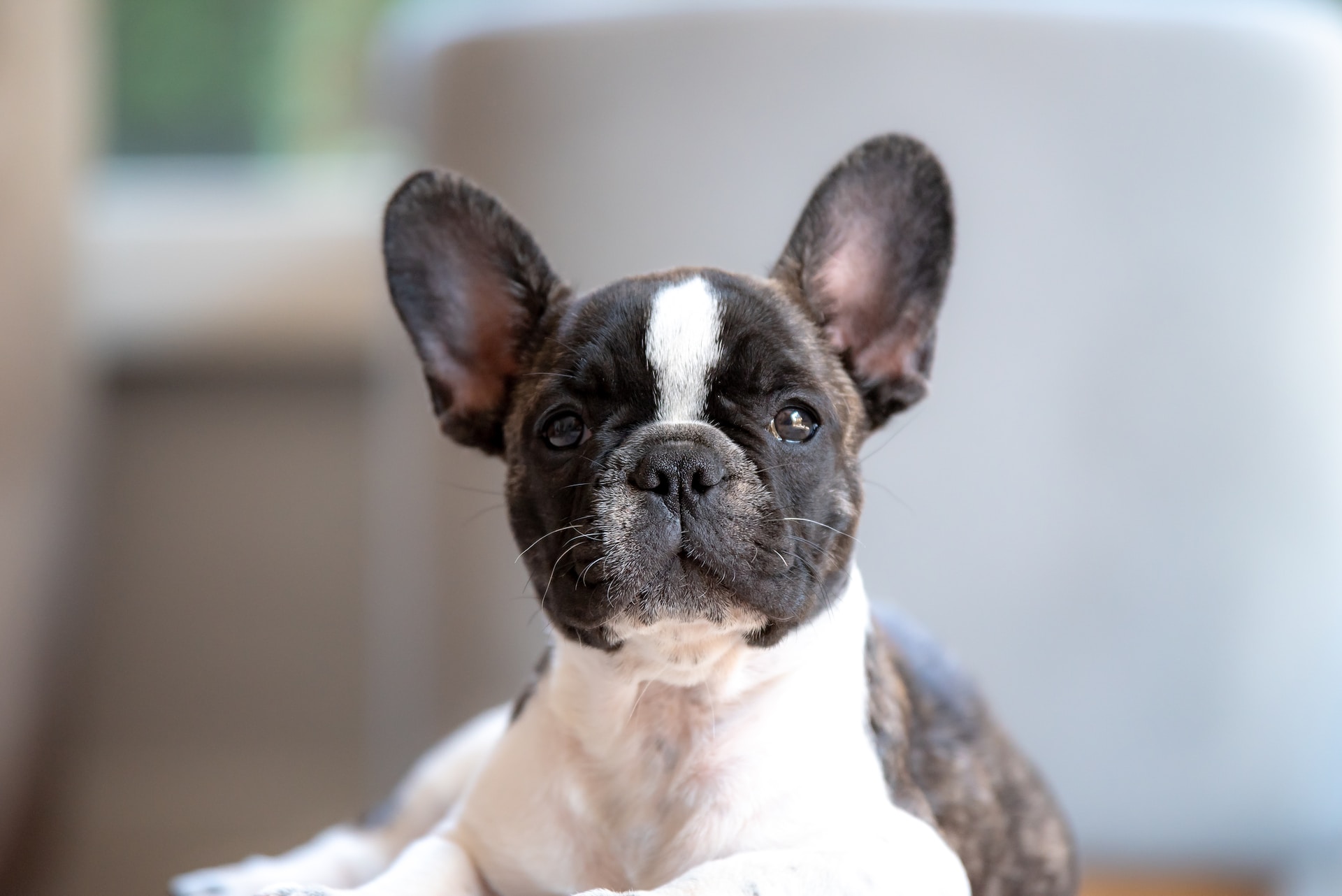
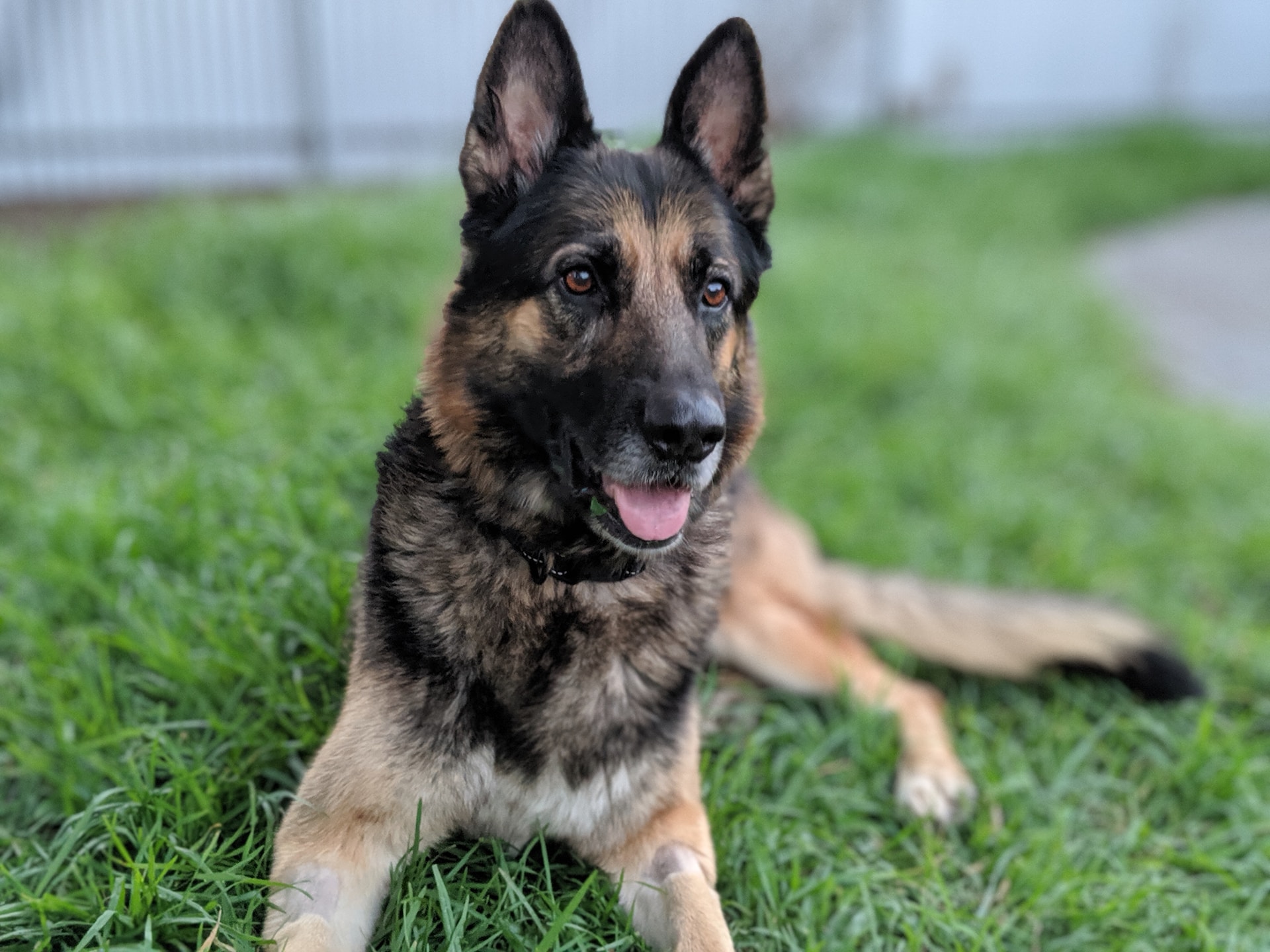

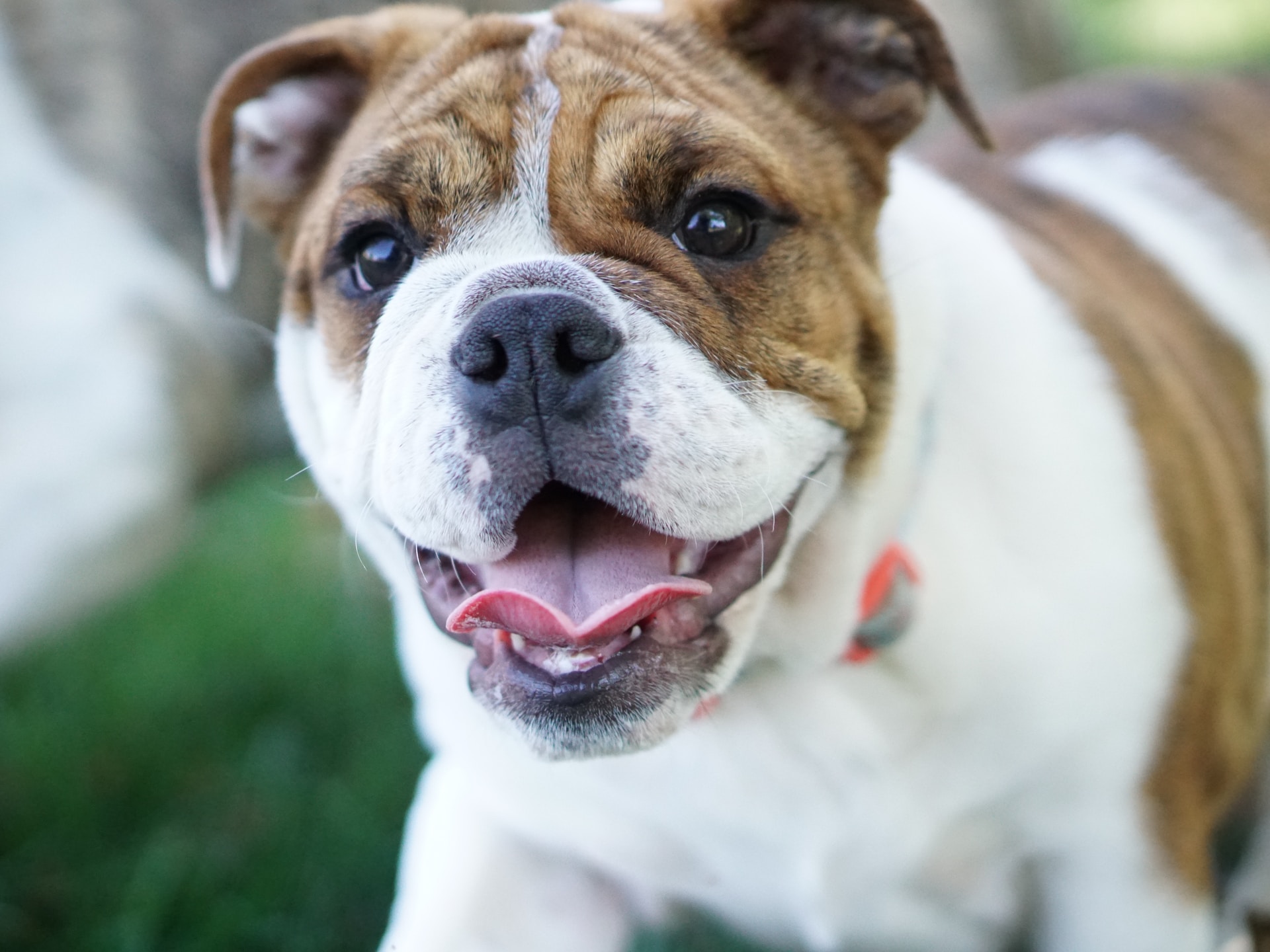
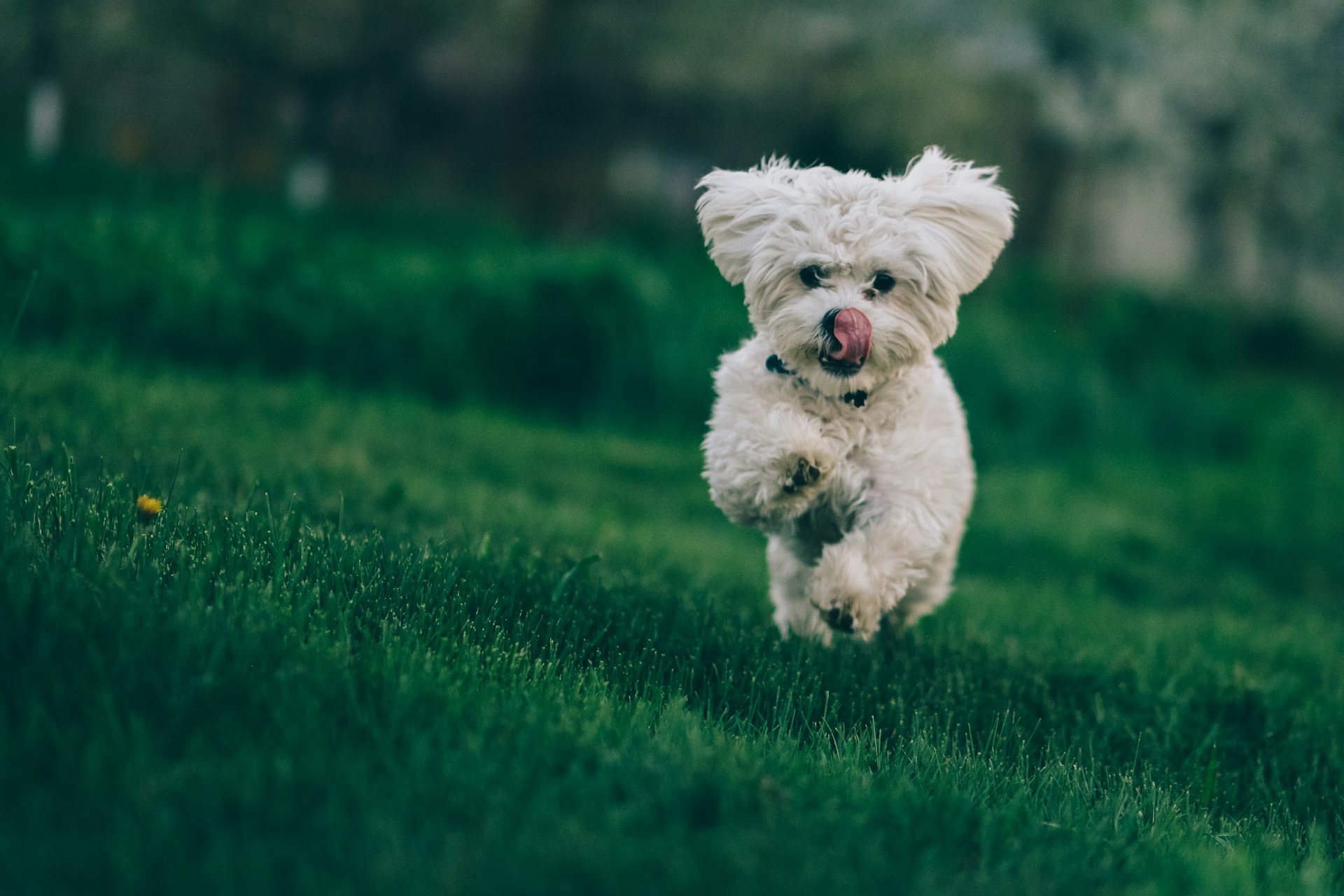


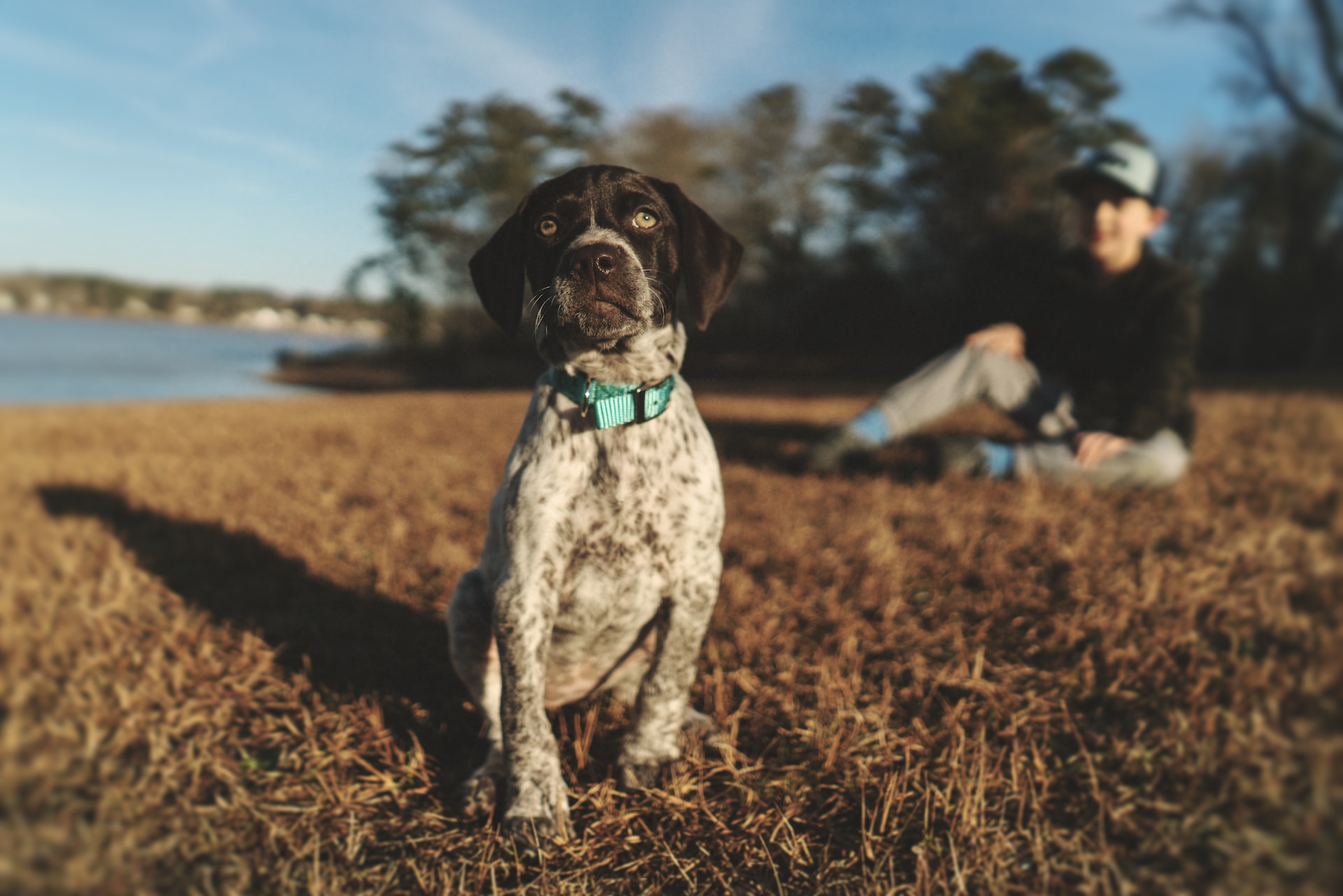




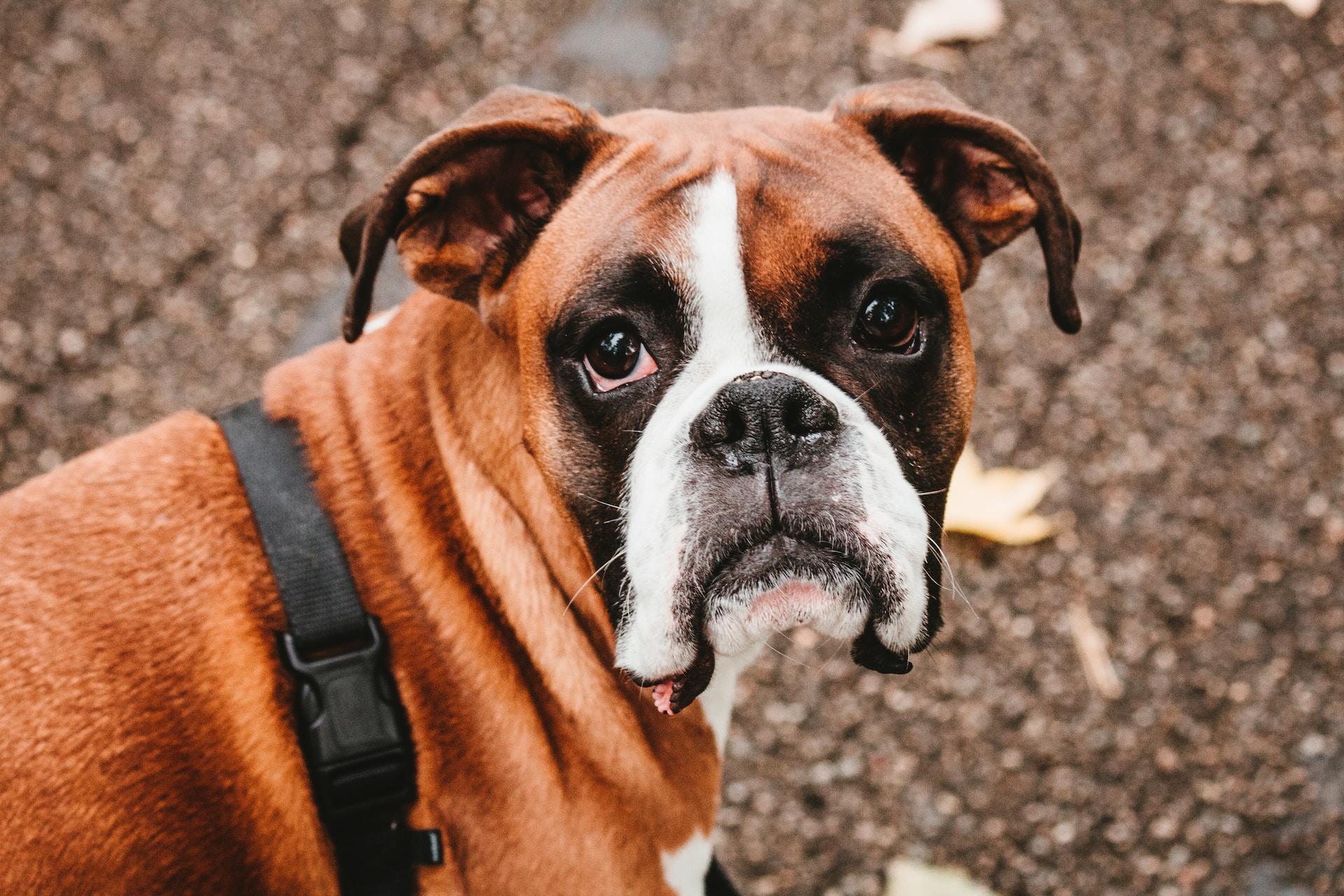
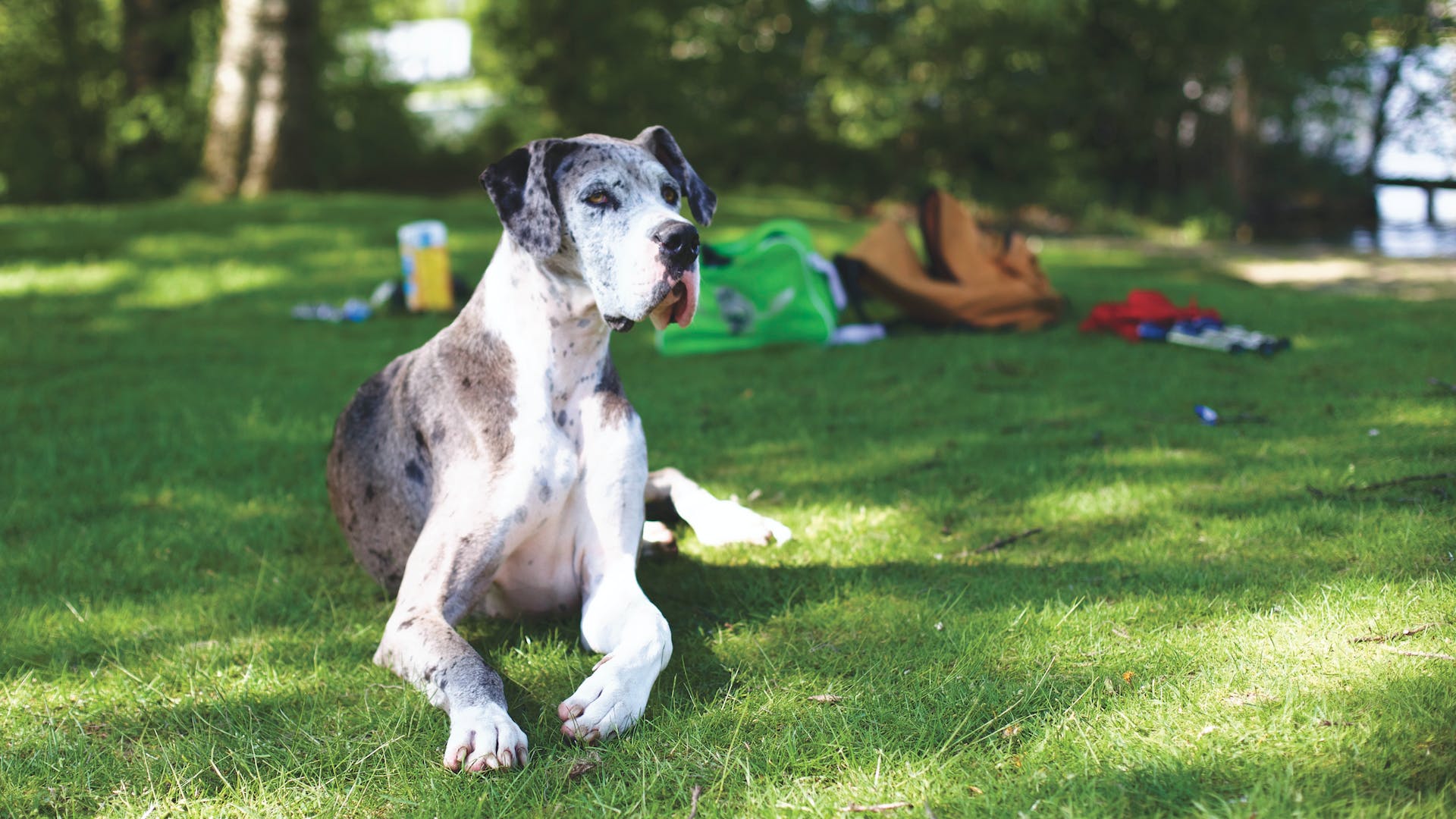

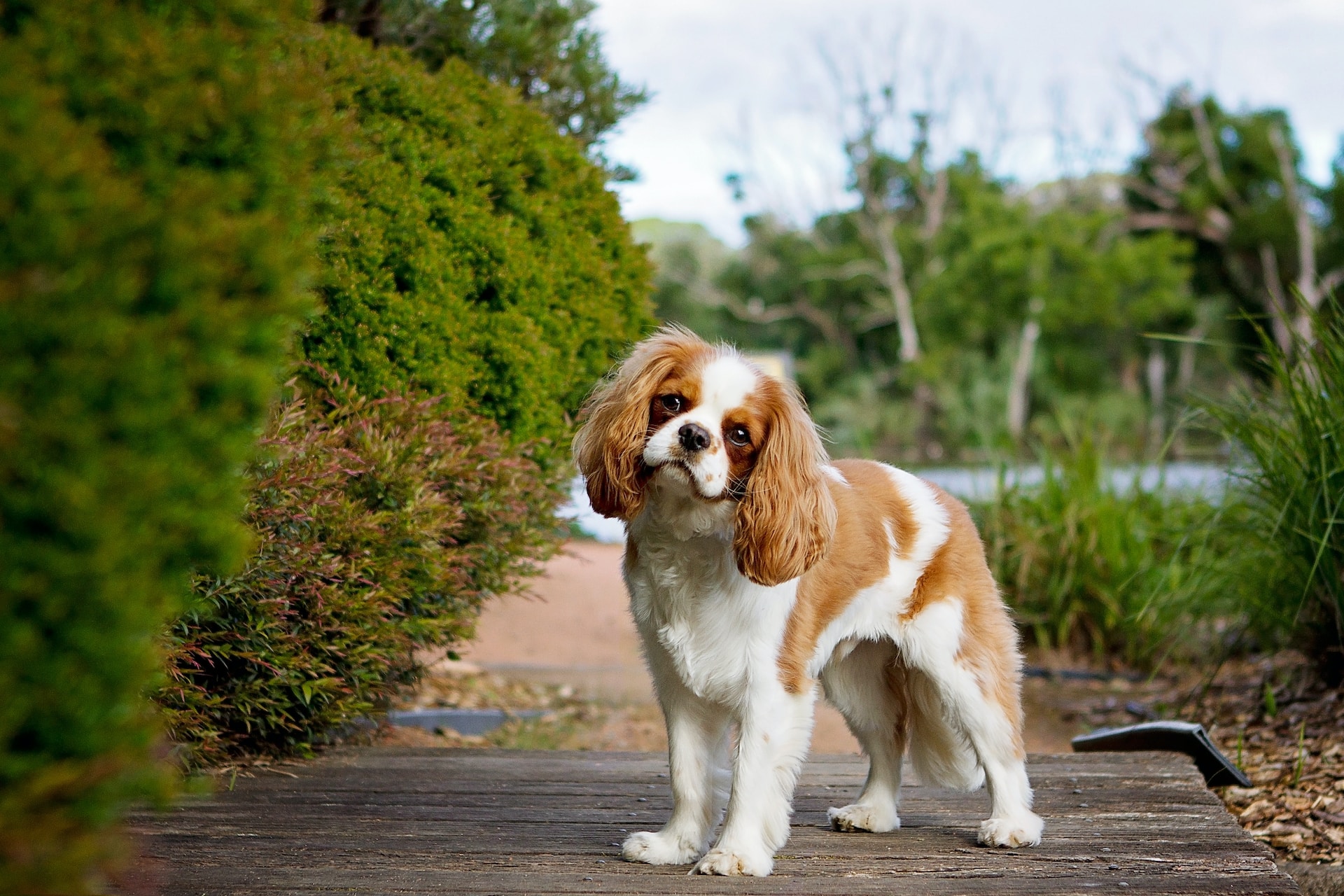
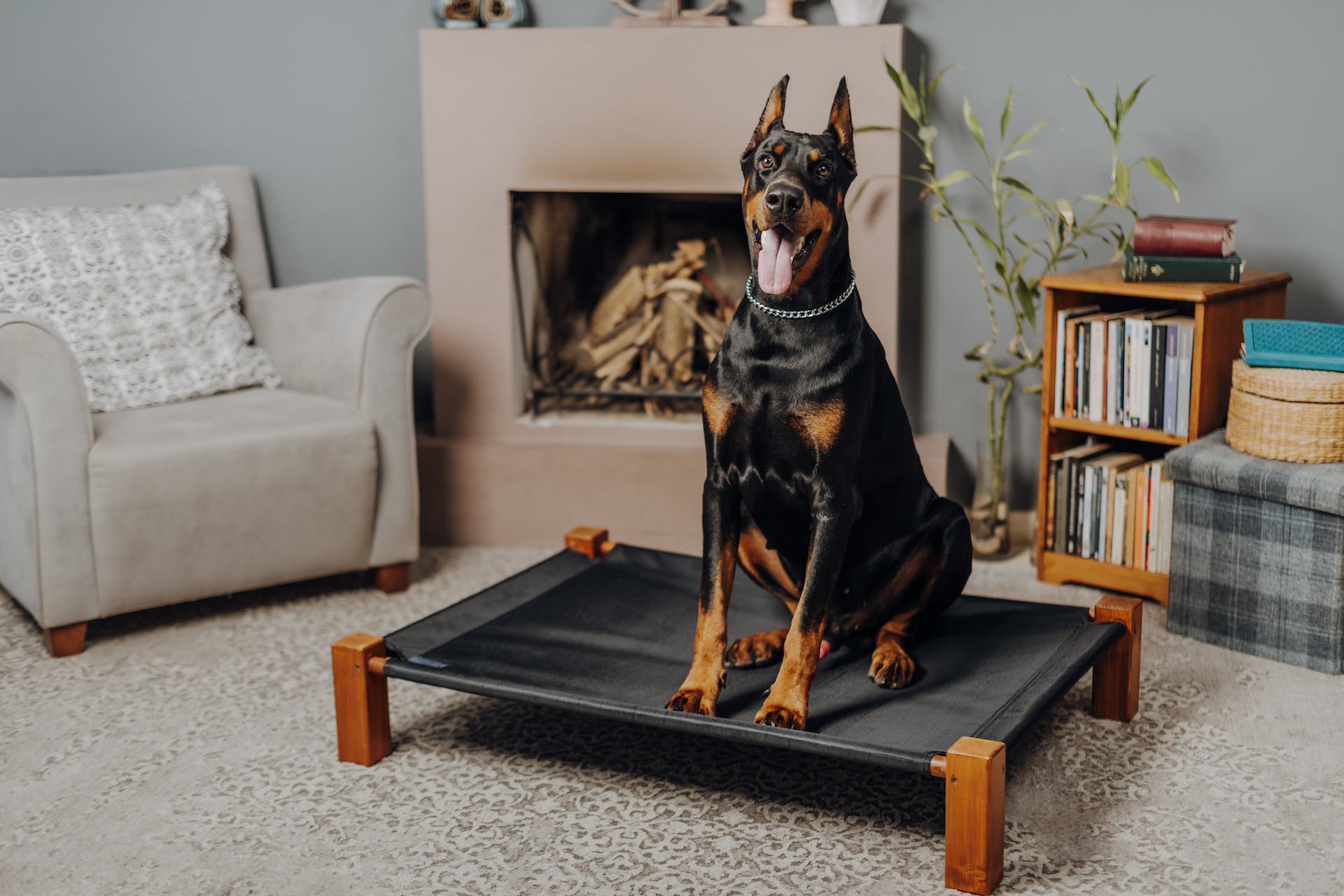
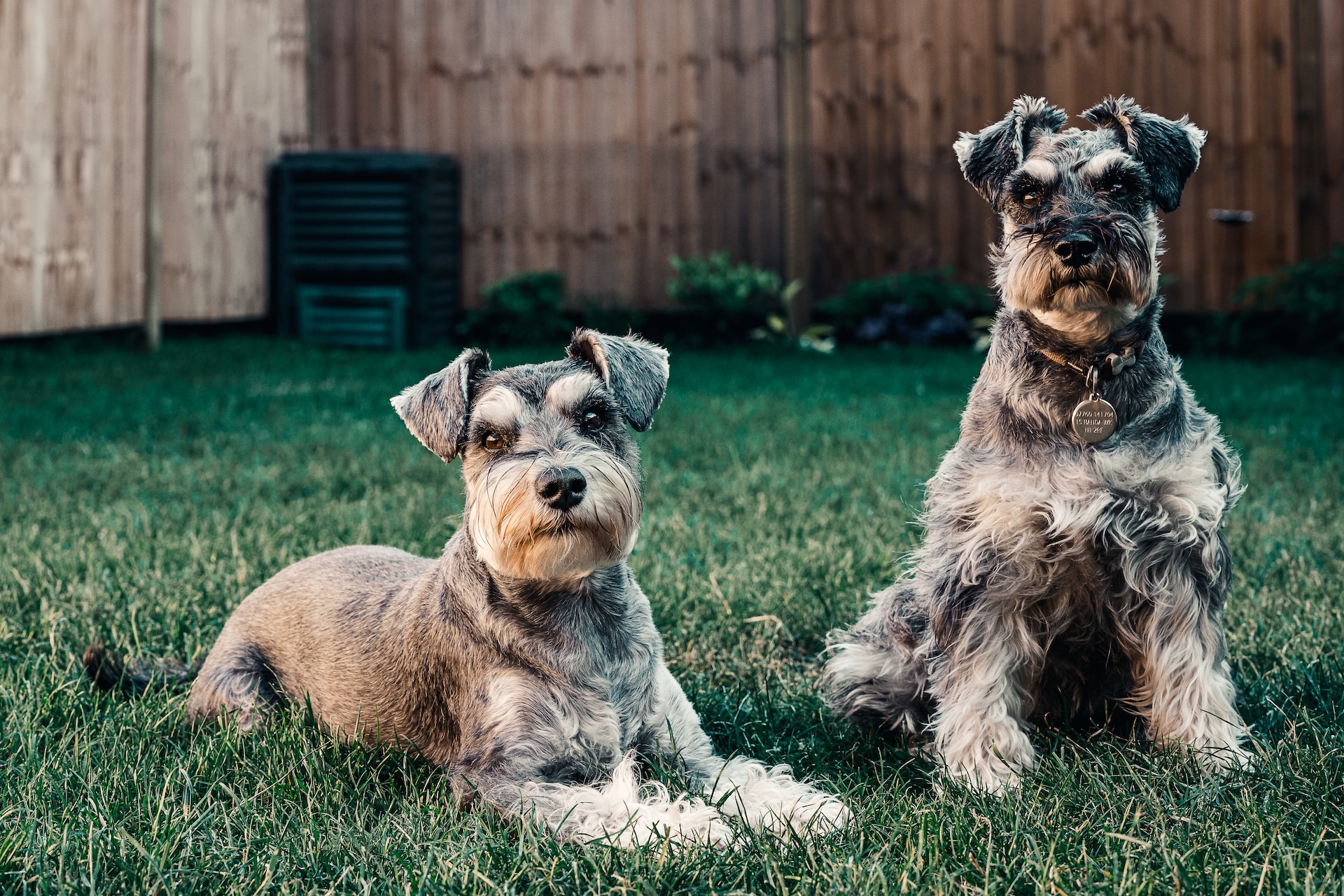


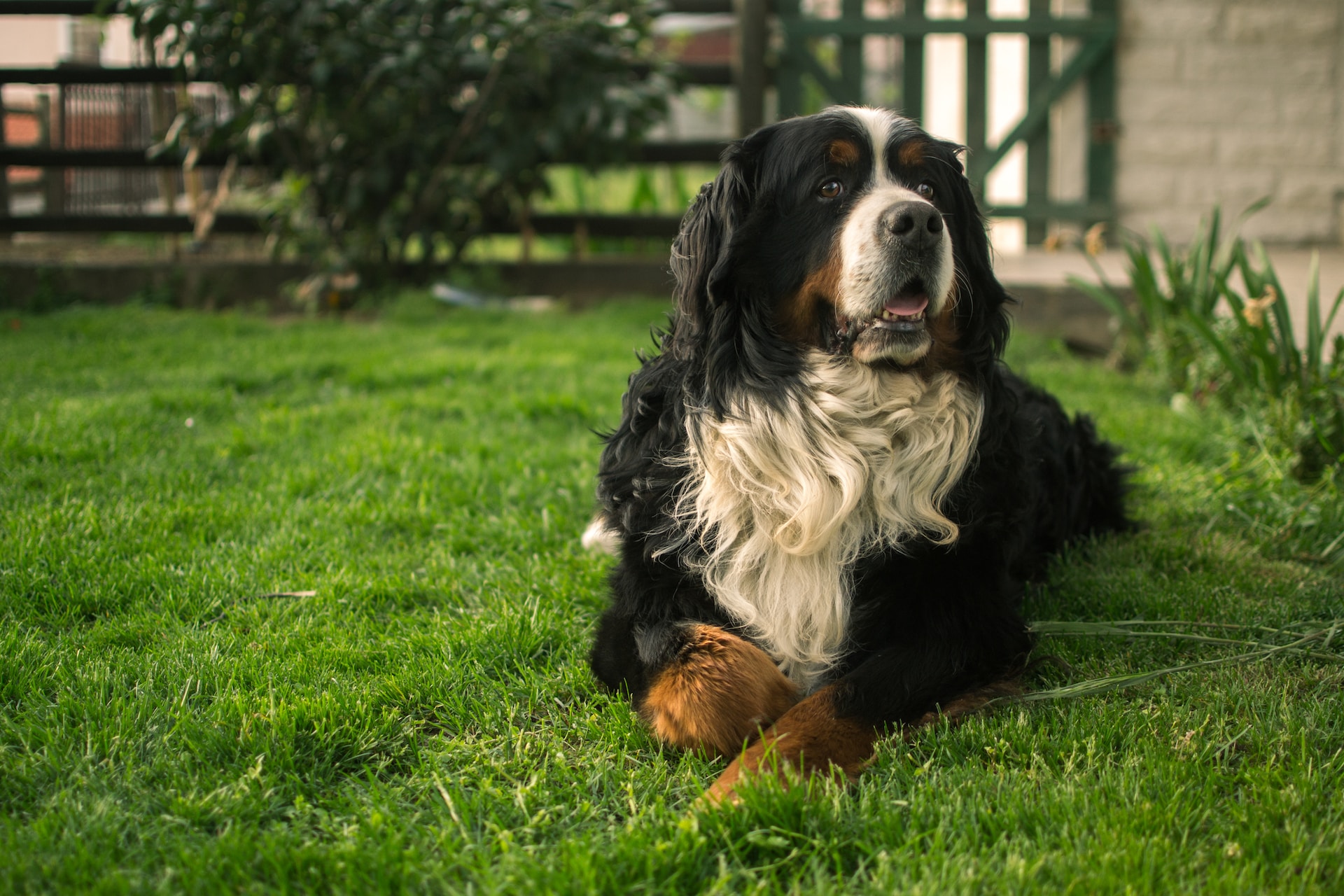
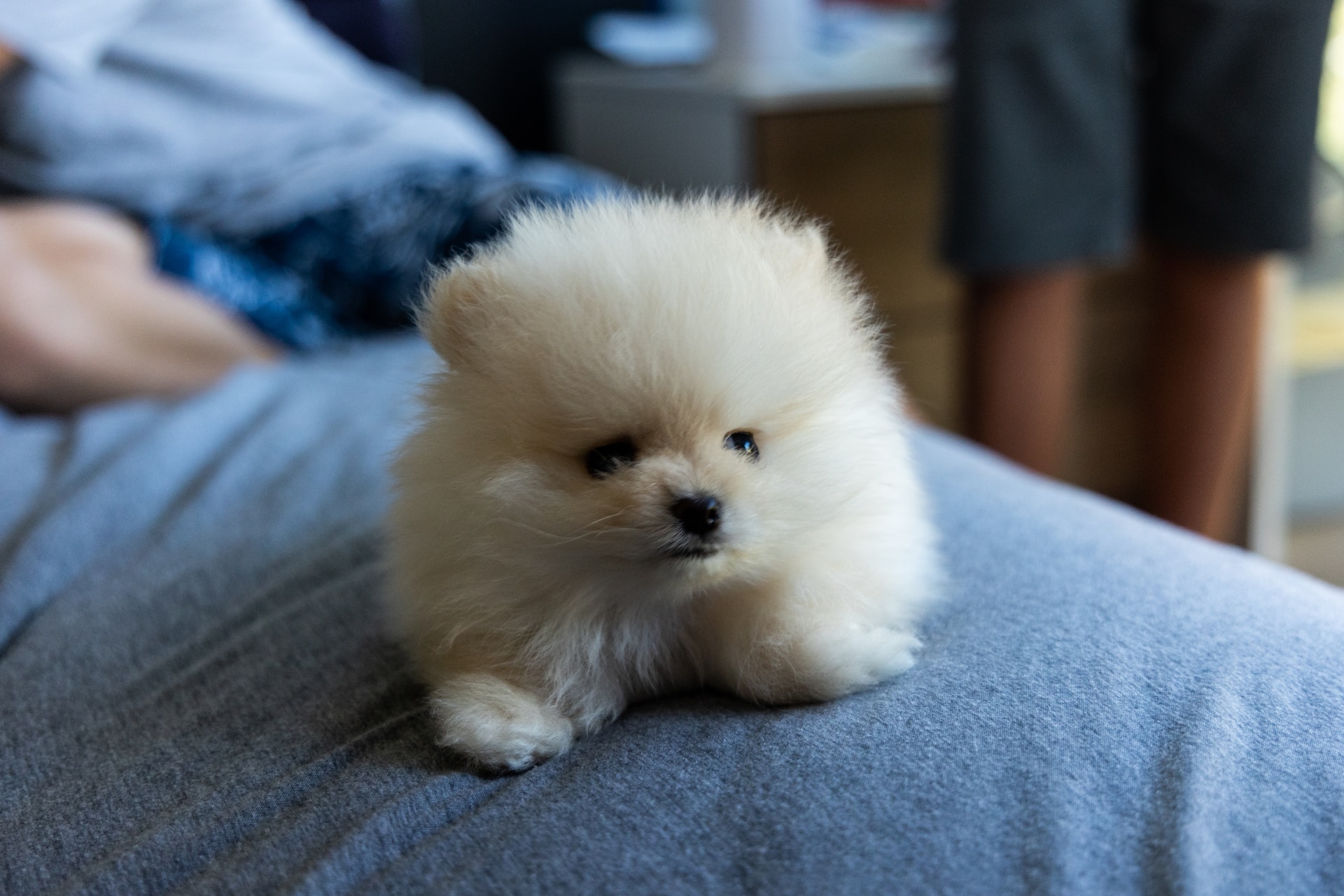
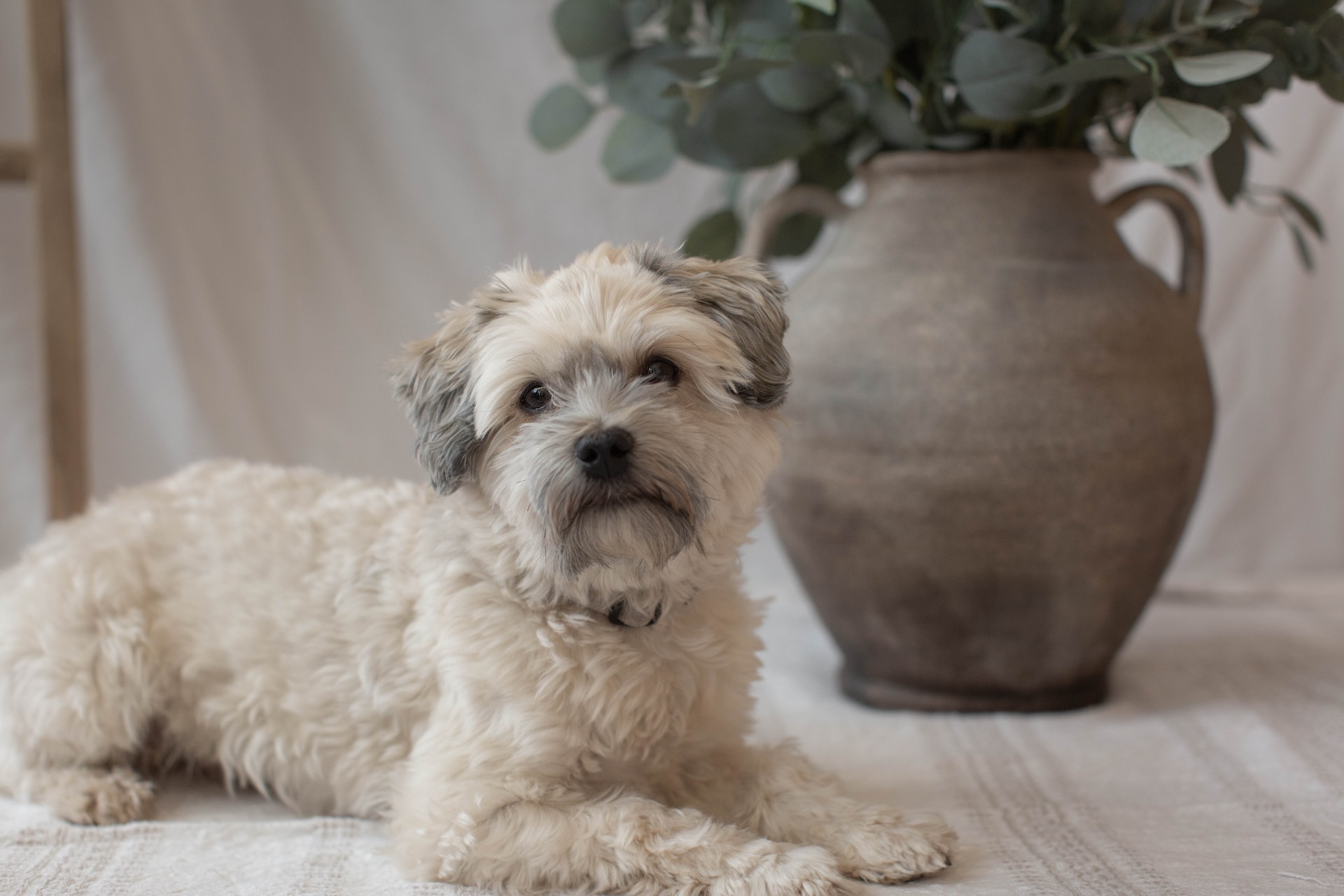
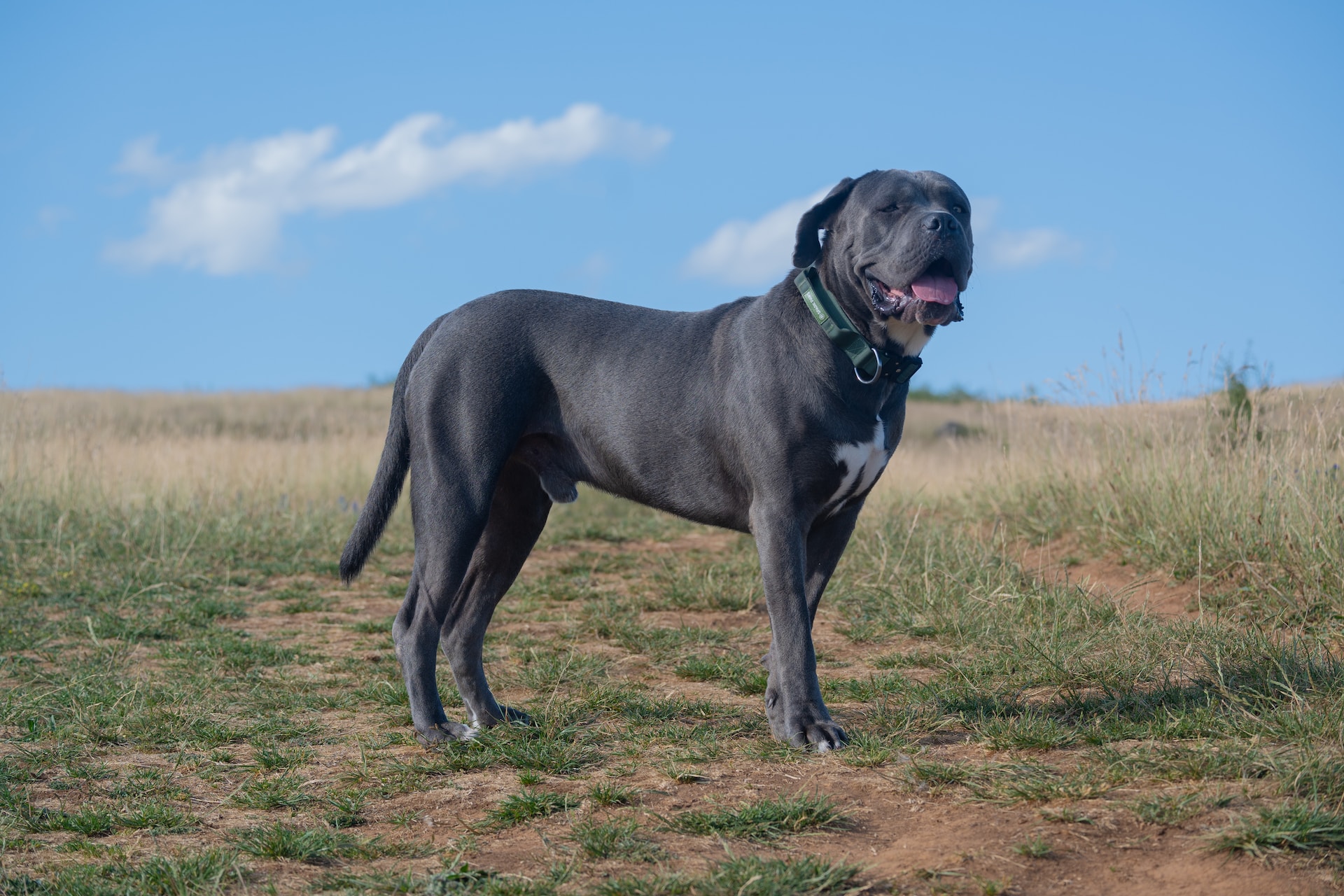

Be the first to comment